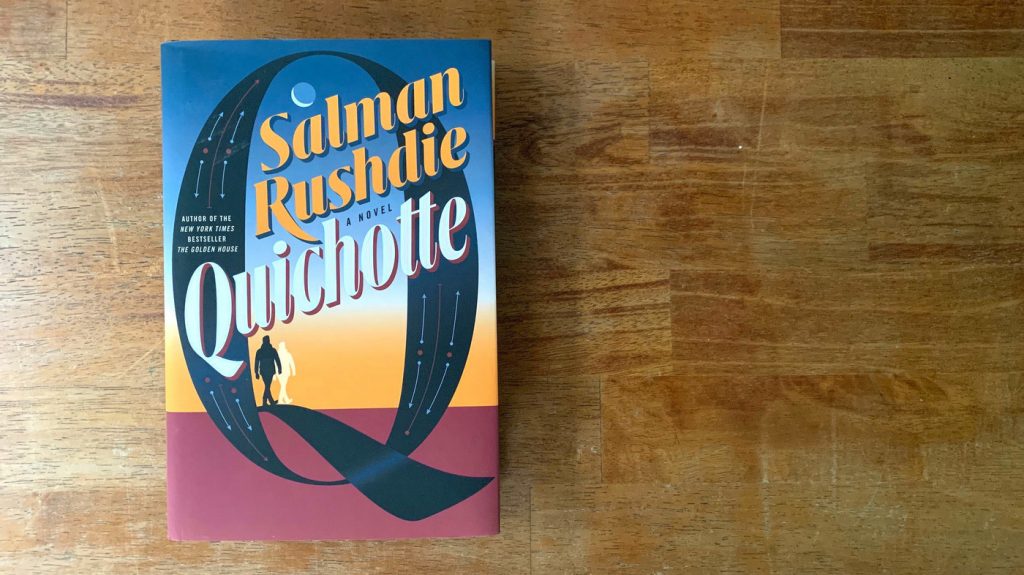Sudha Devi Nayak
Salman Rushdie, the internationally acclaimed writer, won the Booker Prize for ‘Midnight’s Children’ in 1981, the Booker of Bookers in 1993 for the same novel and again the Best of the Booker in 2008. His novels have also been shortlisted for the Booker in other years; his latest novel ‘Quichotte’ did not quite make it to the Booker, but has certainly created waves in the literary world. With his intellectual prowess and rich imaginative resources, the master storyteller has spun for us a breathtaking novel that is a roller-coaster motorcar ride across America. Peppered with literary allusions and references to the pop culture of the day with its TV serials, reality shows and popular movies, the book can be overwhelming but nevertheless an exciting read to a reader who can think and imagine. The Booker panel of 2019 described the novel as a “picaresque tour-de-force of contemporary America with all its alarms and craziness, a celebration of storytelling and language that will delight lovers of Cervantes, lovers of daytime TV and lovers of life”.
‘Quichotte’ is patterned on Cervantes’s famous classic of ‘Don Quixote’, where he immortalised an old Spanish nobleman who goes mad from reading chivalric romances. Likewise, Rushdie presents a worn out pharmaceutical salesman of Indian origin, of advancing years and retreating mental powers who goes crazy watching TV. He calls himself Quichotte, falls impossibly in love with R Salma a reality TV star, also of Indian origin, dreams up a teenage son and embarks on a road trip in her quest. He enters the Age of Anything, a magical world where unreal is real, fact and fiction merge and the boundary between truth and untruth is blurred. In the course of his journey he encounters racism, crass materialism, opioid crisis, “a scary pandemonium of life in modern times”.
The story weaves in and out of the magical and the real — the real is the story of a quest where he believes in humanity and the larger love in spite of the overwhelming odds and the fantasy world of green suited mastodons and Italian crickets who speak. It is a quest for the holy grail and Quichotte says every quest is in the actual world as well as the symbolic where the maps are only in the head. He believes in the possibility of the impossible opening himself to the immensity of the universe abandoning all thoughts of the past, present or future and allowing the eternal into one’s being.
The story of Quichotte is a story within the story of Sam Du Champ, an Indian American author of second grade spy thrillers whose life is intertwined with the life of Quichotte the character he has created, with the same relationships, the same guilt trips and the quest for love and family as himself. The quest for love ends with Quichotte and Salma standing in the Valley of Annihilation with the power to disappear into the universe.
Quichotte is a satire on modern day America, its spiritual and moral poverty, where conscience is not a major requirement in human affairs but plenty of ruthlessness, narcissism, bigotry, greed, dishonesty and violence. Yet the novel breathes the air of hope and love transcendent that cuts through the dross and ugliness and makes us feel that there is still hope for humanity. With its myth and magic, reality and the absurd, humane and humorous the book casts its spell on the reader and tells him that amid the chaos there is still love that can hold the equilibrium. With his overpowering language and sparkling style, Rushdie has managed to capture the literary imagination.
Yet there are times when we also feel that Rushdie is on an overdrive, a little ostentatious, a little heavy and mannered, constantly driven to give a performance at the expense of his natural gifts for storytelling. The novel is allowed to run away with the imagination of the “writer in free fall” and we run with it.
